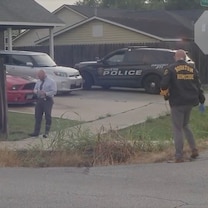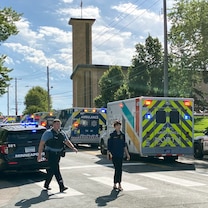Critical DNA evidence to be allowed in Gilgo Beach serial killer case, judge rules

Rex Heuermann is accused of killing seven people over a span of decades.
A New York judge on Wednesday admitted DNA evidence that Suffolk County prosecutors say links alleged Gilgo Beach serial killer Rex Heuermann to the murders of at least seven victims.
The defense had challenged the evidence since it was obtained using new DNA technology -- known as whole genome sequencing -- that had never been used in a New York court.
Prosecutors successfully argued the technology was derived from accepted scientific methods. Ahead of a series of court appearances over the summer, prosecutors argued the defense motion to dismiss the evidence should be denied because the technique is "generally accepted in the scientific community” and is based on technology “relied upon in a wide variety of scientific and forensic settings."
Heuermann, who was arrested in July 2023, has pleaded not guilty to the murders of seven women whose remains were found discarded on Long Island between 1993 and 2011.
His attorneys had urged the judge to preclude evidence pertaining to DNA results obtained from hairs recovered from six victims: Maureen Brainard Barnes, Megan Waterman, Amber Costello, Sandra Costilla, Jessica Taylor and Valerie Mack.
"For over thirty years, New York State courts have continuously adapted to embrace advancements in DNA technology," Suffolk County Assistant District Attorney Andrew Lee said earlier this year. "The advancement of forensic science and nuclear DNA analysis involving Whole Genome Sequencing has allowed law enforcement to now link genetic profiles consistent with the defendant, and/or individuals who have resided with him, to six of the seven victims through hairs found at the crime scene and/or on the victims. The People intend to introduce such evidence of defendant’s guilt at trial, which will aid the jury in its determination."

This is a developing story. Please check back for updates.
ABC News







